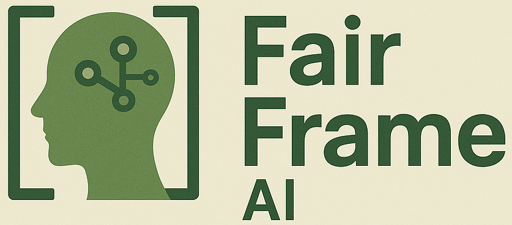Why AI Fairness Can’t Be Ignored
The Invisible Architecture of Inequality
AI is already making high-stakes decisions—who gets hired, what career a student is guided toward, or how a patient's symptoms are interpreted. But most AI systems are trained on biased datasets that reflect historical inequalities—not equitable aspirations.


When AI learns from biased data, it scales discrimination invisibly.
Even well-intentioned developers may overlook this, assuming neutrality where none exists. That’s why awareness and accountability must come before automation.
Real-World Harm Caused by Biased AI
Career Platforms:
Women and people of color are often underrepresented in executive roles within training datasets.
Result: Career copilots fail to recommend leadership tracks to qualified candidates like Lisa, who gets suggested lateral roles she’s already outgrown.
Healthcare Tools:
Diagnostic algorithms trained on narrow, non-diverse populations can miss symptoms in minority patients.
Result: Healthcare chatbots or triage bots may overlook or misdiagnose conditions for marginalized groups.
Education Apps:
Learning systems and tutoring bots trained on historical performance data can limit future possibilities.
Result: Students like Aisha are never shown paths like engineering or data science—because people like her were historically left out of those fields.
Financial Algorithms:
Credit scoring tools can quietly penalize individuals based on location, race proxies, or outdated metrics.
Result: Entrepreneurs like Jay are denied fair access to capital based on zip code patterns, not personal creditworthiness.
These aren’t glitches—they’re echoes of systemic bias that get embedded and scaled by design.
Why “Fair by Default” Doesn’t Exist
Many assume that technology is objective. But AI systems learn from the past—and the past is unequal. Leaving bias detection up to vendors or individual developers is not enough.
Without tools, training, and public accountability, bias will remain hidden.
We need a framework where:
➤ Bias is visible
➤ Fairness is measurable
➤ Inequity is correctable


Our Belief
AI can do better—when we demand better.
Fairness isn’t automatic. It’s intentional. And it starts by understanding the harm already embedded in the systems we use every day.






At FairFrame AI, we believe that technology should uplift humanity—not reinforce its inequalities.
Bias is not inevitable—it’s correctable.
Transparency is not optional—it’s essential.
Inclusion is not a feature—it’s a foundation.
Artificial Intelligence has the power to transform our world, but only if it's built on principles of fairness, transparency, and accountability. Too often, AI systems mirror the biases of the data they're trained on—quietly perpetuating discrimination in hiring, lending, healthcare, and education. We believe this isn’t just a technical flaw—it’s a societal challenge. One that calls for a human-centered response.


The Real-World Consequences of Biased AI
AI isn’t just code—it’s becoming the invisible hand behind decisions that shape lives. From credit approvals to career guidance, biased systems quietly steer opportunities away from the people who need them most. The cost isn’t theoretical. It’s personal, and it’s happening now.


Beyond Awareness: Action
The world doesn’t lack awareness of AI bias. What it lacks is accountability. Many organizations acknowledge the problem, but few take the bold, evidence-based steps needed to fix it. FairFrame AI fills that gap with audits, education, and actionable tools that move fairness from aspiration to implementation.


Giving Voice to the Marginalized
Bias in AI often silences those already underrepresented. We believe the people most affected by algorithmic harm should be at the center of conversations—and solutions. FairFrame AI actively listens to these voices and builds mechanisms to ensure inclusion by design.


Building Public Trust in AI
AI will only earn public trust when it operates transparently and equitably. FairFrame AI is committed to making AI systems understandable, accountable, and auditable, helping institutions earn the confidence of the people they serve.
We expose invisible barriers—before they become missed chances.
Talking about ethics isn’t enough—we show you what to do next.
Fairness means nothing without representation.
Trustworthy AI begins with transparent AI.
Fairness: The Key to Opportunity
Breaking Down Barriers to Equity
Contact
Get in touch for collaboration and inquiries.
Join
info@fairframeai.org
© 2025. All rights reserved.
